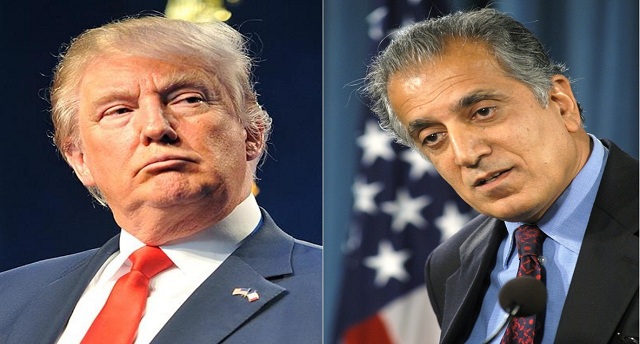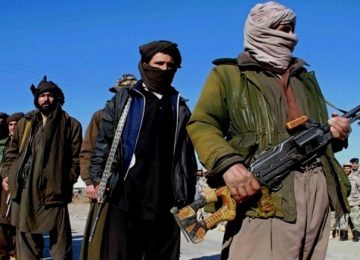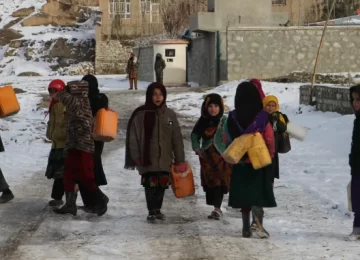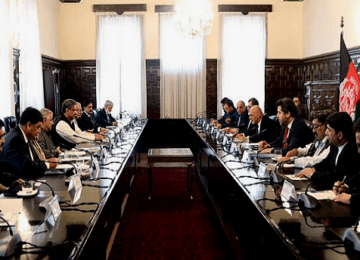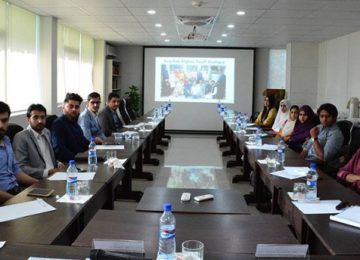September 05, 2018.
US Secretary of State Mike Pompeo, on Tuesday, named veteran diplomat Zalmay Khalilzad as a special adviser on seeking reconciliation in war-battered Afghanistan, while speaking to reporters aboard his plane, as Khalilzad joined him on a trip to Pakistan and India. Afghan-born Khalilzad was earlier tapped by President George W. Bush to be his ambassador to Afghanistan after the overthrow of the Taliban following the September 11, 2001, terrorist attacks, later also serving as ambassador to Iraq and the United Nations under his administration.
Upon hearing the news of US Secretary of State’s likely appointment of Khalilzad that broke out last month, the people of Afghanistan wrote an open letter pleading with the US President not to appoint the former diplomat as the US special envoy to Afghanistan. Following is the letter shared with Afghan Studies Center by our Afghan friends, which reflects the Afghan people’s sentiments regarding the new envoy.
An Open Letter from the People of Afghanistan to the President of the United States
August 25, 2018
President Donald Trump
The White House
1600 Pennsylvania Avenue,
NW Washington D.C 20500
Dear Mr. President:
We really appreciate, and remain grateful for your determination and dedication to break the current stalemate in Afghanistan. Afghan people understand and share your frustrations about the ongoing war in their country which has become one of the longest for the United States. However, in addition to the various internal and regional factors, the current situation in Afghanistan, which is a national crisis with global implications, is a direct result of several individuals middling from the U.S. establishment. These individuals did not have long-term visions for a peaceful, democratic, and prosperous Afghanistan. One of these individuals was Ambassador Zalmay Khalilzad.
Your Excellency, we want to bring to your attention that Ambassador is to blame for creating the perplexing situation that we are in Afghanistan. As the U.S. Ambassador to Afghanistan under President Bush administrations, he channeled the U.S. diplomatic and military resources exclusively in support of his fellow tribesmen, namely former President Karzai and now President Ghani, who have been both pursuing a tribal rather than a national agenda in rebuilding Afghanistan. He pushed, as a high-ranking U.S. Afghan-American official, for centralization of power in a multi-ethnic country first at the 2001 Bonn Conference and later at the 2004 Constitutional Grand Assembly. Afghanistan has a deeply decentralized society. It never has had historically a centralized government. Moreover, Ambassador Khalilzad has used and abused his influences in the U.S and inside Afghanistan to interfere unnecessarily in ethnic and inter-ethnic relationships. Today, Ambassador Khalilzad is known in Afghanistan for his short-sighted and at times tribal-ethnic agenda, which he has even talked about it in his memoir, the Envoy.
Your Excellency, we recently learned through global media that Ambassador Khalilzad is considered to be reappointed as Special Envoy to Afghanistan. We understand that this would be a major concern for us who are still hoping for an opportunity to lay the foundations of an inclusive and democratic Afghanistan. By reappointing Ambassador Khalilzad during this sensitive time with upcoming parliamentary and presidential elections, we will lose hope to once again work alongside our American partners. We do not see Ambassador Khalilzad as an impartial envoy. He is very much invested in the tribal, ethnic, and short-sighted politics in Afghanistan forwarding a diplomatic agenda favoring one ethnic group at the cost of another. Afghan people remain grateful for your determination, and they are thankful to American service men and women who have paid ultimate sacrifice with their lives for Afghanistan. We really hope that Your Excellency will take into consideration our concerns.
Sincerely,
The People of Afghanistan
[Their Petition]
Disclaimer: Views expressed on this blog are not necessarily endorsed or supported by the Center for Research and Security Studies, Islamabad.



